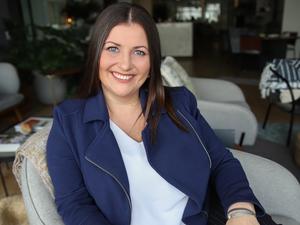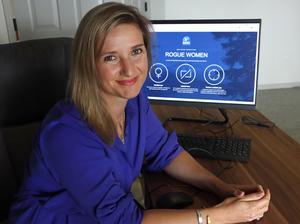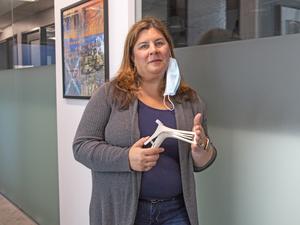
Portland supplements startup Wile is hitting thousands more store shelves with a rollout of products at all Sprouts Farmers Market locations and 2,200 CVS locations.
The move comes as the company is raising a bridge round of investment ahead of raising a full seed or A round early next year, said co-founder Corey Scholibo. Last year the company raised $3 million, led by Springdale Ventures and Serena Ventures. It's raised about half of the bridge round from existing backers.
Wile was launched in 2021 by President and COO Scholibo, CEO Gwen Floyd, Chief Brand Officer Julie Kucinski and actress Judy Greer. The company makes a line of supplements, tinctures and drinks based on herbal and plant formulas designed to address perimenopause and other midlife hormonal shifts in women over 40.
The company has a team of eight that is fully remote. Scholibo is based in Portland and he said he is excited to be a Portland-based startup. The company’s scientific partners who formulate the products are also local, such as natural medicine physician Jillian Stansbury who is in Battle Ground, Washington.
“Portland is the center of gravity,” said Scholibo, who moved here three years ago.
The company’s tinctures are manufactured in Eugene and its powders and capsules are manufactured in Wisconsin.
How Wile came together
Scholibo was the connective tissue of the founders coming together. He had stepped out of his previous company, Repurpose.com, and knew Floyd, Kucinski and Greer. Both Floyd and Kucinski told him they wanted to start a business focused on women in perimenopause and menopause. At the same time Greer was lamenting on her experience seeking care during this time of life.

“There is nothing to fix (in women going through perimenopause and menopause). This is a transition and the transition can be more supported than traditionally done,” said Scholibo, who added that even when women seek support there is an egregious lack of options or they are written off by doctors.
The Wile team is trying to take the herbal prescriptions used by naturopaths and other traditional healers for years and scale the knowledge and access to more women. Its most popular products are aimed at treating burnout.
The response to the products have been off the charts and reflect the demand of a demographic that is often ignored, said Scholibo.
“Usually when you start a company you have to pay people to take surveys,” he said, but with Wile women were coming to them and forwarding the information to all their friends. “The response was huge. Women were so ready to be heard. Women drop off of (corporate) marketing decks at 44, so there is a pent up need out there.”
Last year, the company had $3 million in revenue, and it is anticipating more growth this year. The products are available in 12,000 stores nationwide. Locally, it is on the shelves at New Seasons.
Fundraising challenges
As the team gears up for fundraising, Scholibo said he knows it will be challenging as a company founded by women and with a product aimed not only at women’s health but a phase of life past generations didn’t want to talk about.
“Women’s health is deprioritized by investors,” he said, adding that he would get pretty far pitching women in a venture fund, but once it was decision time he would be talking to a 60-year-old man who might give the product to his wife. If she didn’t like it, even though she might not be in the 40-55 demographic, the investor would walk, he said.
Last year in the U.S. companies with male and female founders raised $38 billion, a small slice of the $238.3 billion total investment, according to data from research firm Pitchbook.
Once Wile had purchase orders from Whole Foods and Walgreens investors were more apt to be interested.
“I’m not sure that brands not aimed at women would have that concern,” he said.
Retailers understand the company’s thesis much better, he said. They see the consumer and they know they need this woman, who is likely in Gen X or an older Millennial, and who has always known a consumer market that would offer products for their needs.
“There’s a $40 billion period care market. Why would the menopause market be smaller,” Scholibo said. “From a CPG standpoint there are billions and billions left on the table and that’s just from a purely capitalist view and not to mention the (human) health care perspective.”








